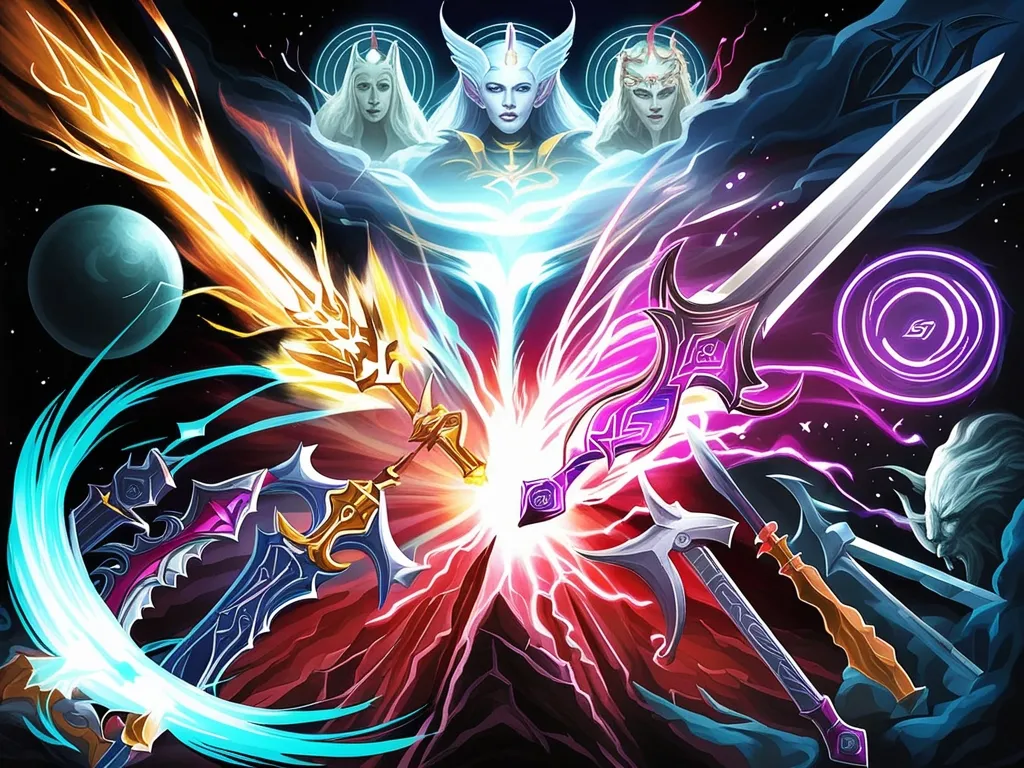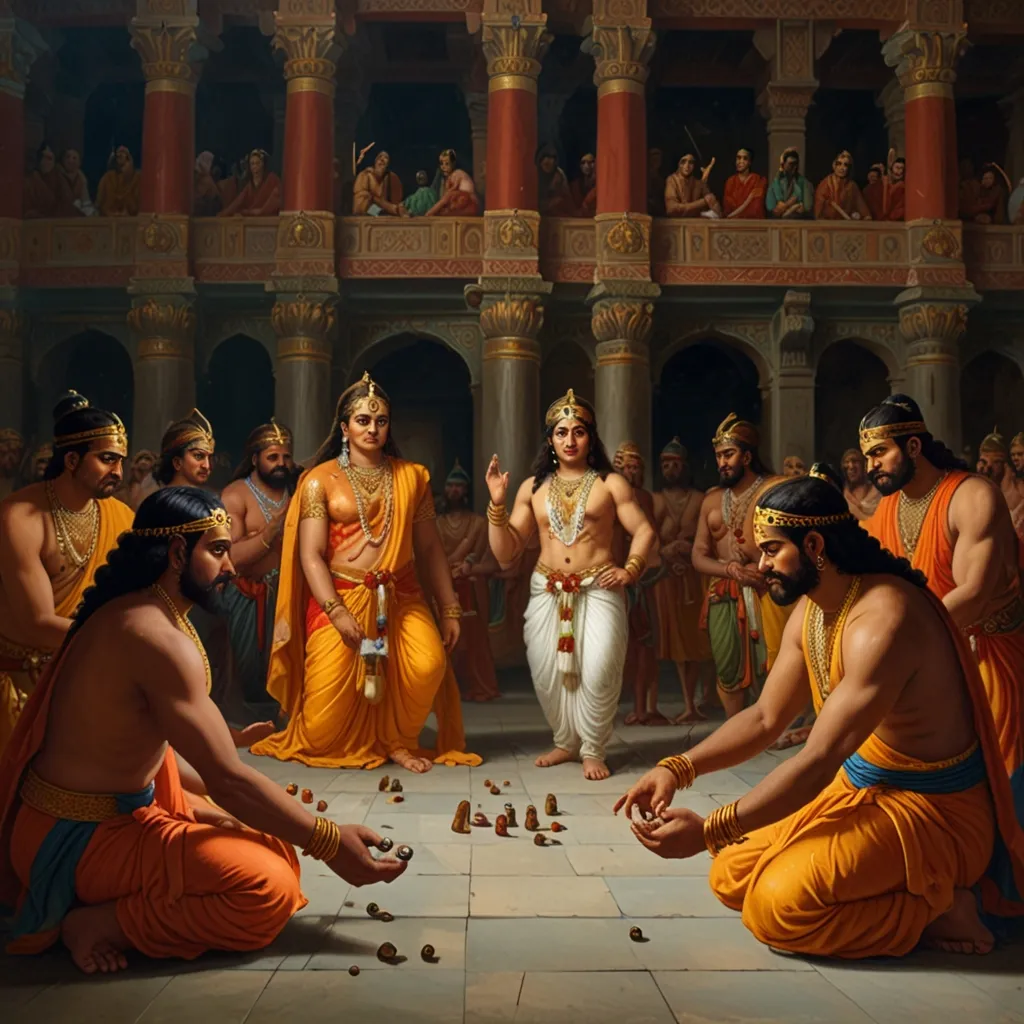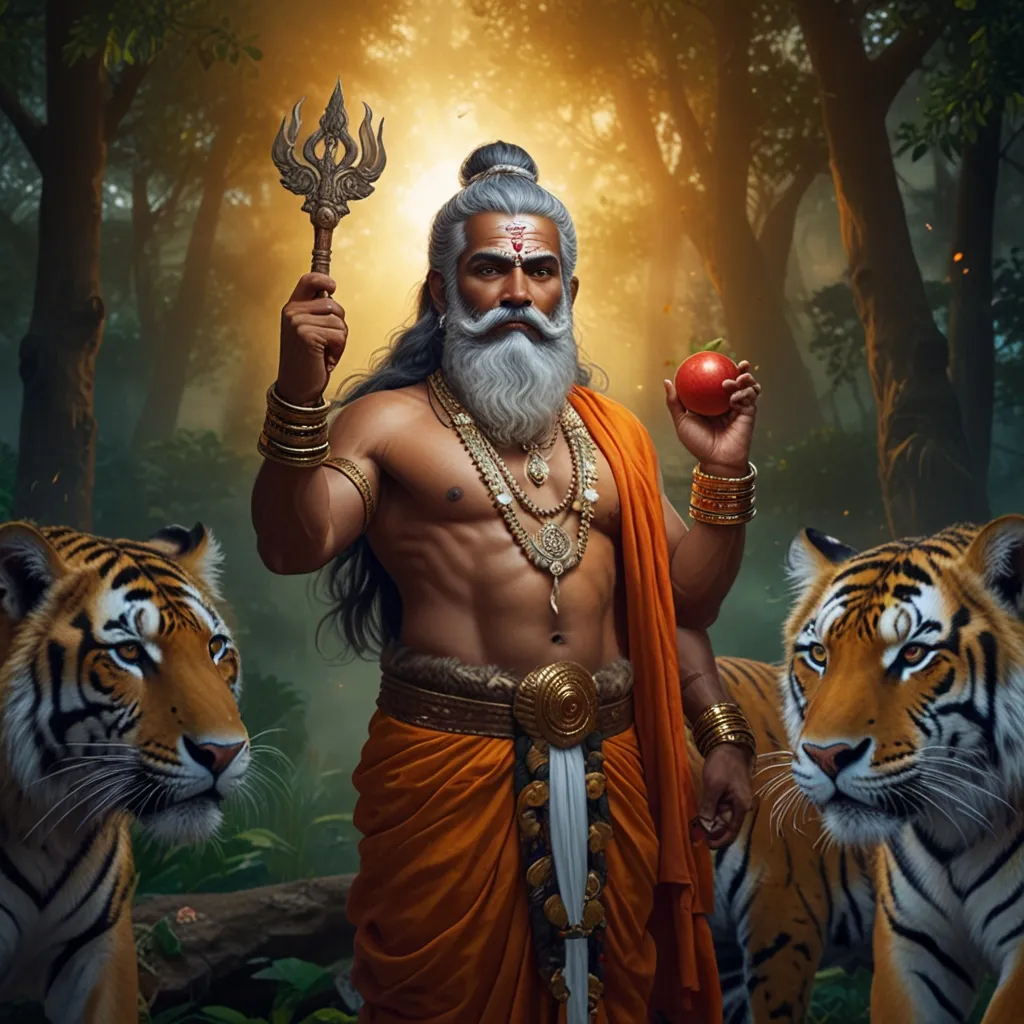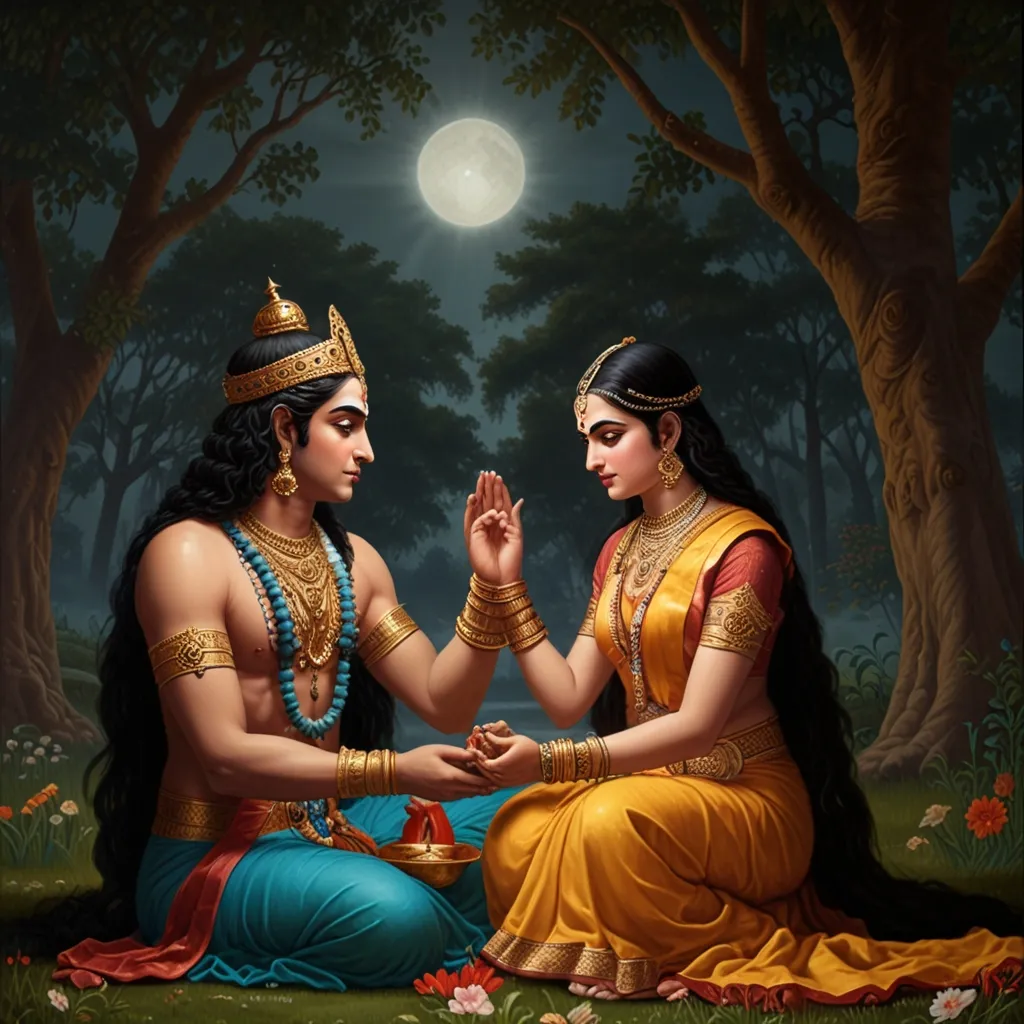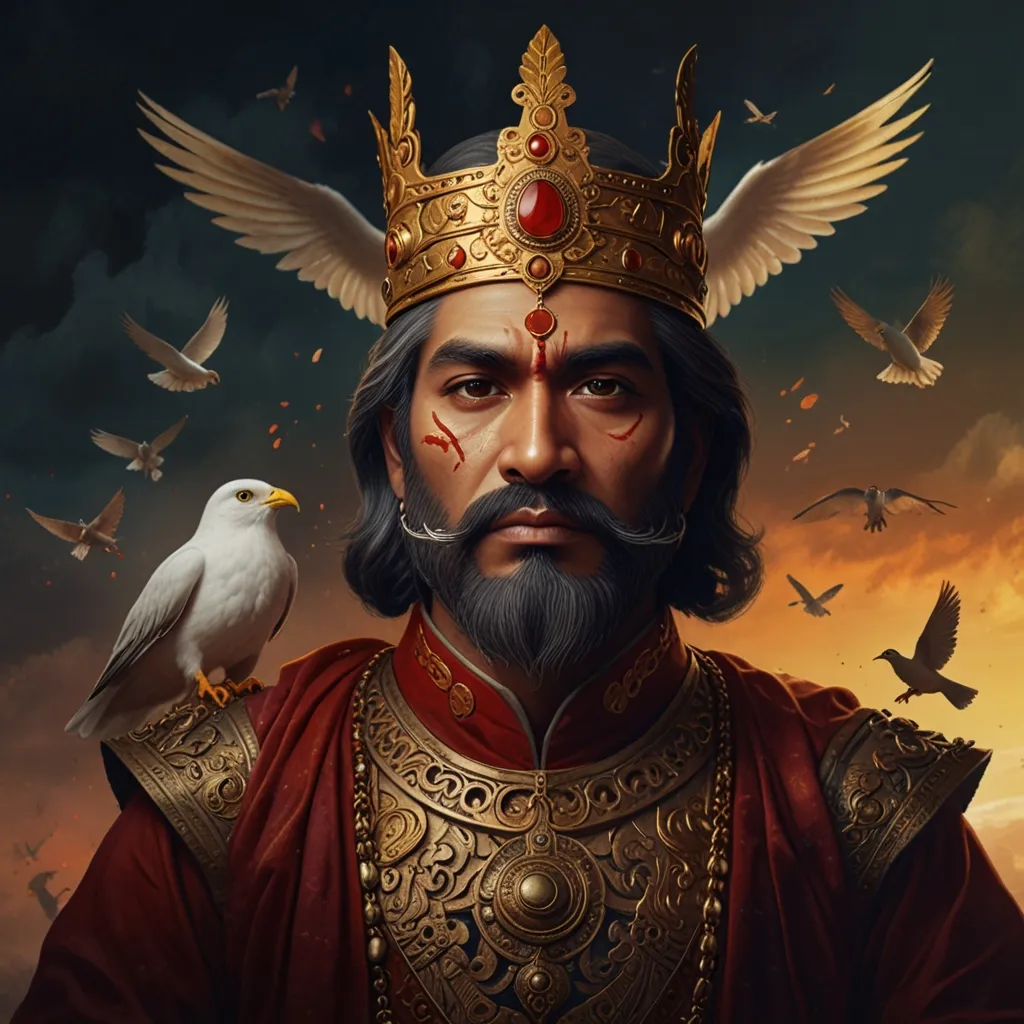As we delve into the epic tale of the Mahabharata, it’s easy to get caught up in the grand battles and the heroic deeds of its legendary warriors. However, there’s a fascinating aspect of this ancient narrative that often slips under the radar: the astras, or supernatural weapons, that play a pivotal role in the story. These mystical armaments are not just tools of war but carry deep symbolic significance and offer insights into cosmic principles and human consciousness.
The Origins and Powers of Astras
Astras are divine weapons presided over by specific deities and imbued with spiritual and occult powers. To wield an astra, a warrior must possess the knowledge of the mantra associated with it, which is often passed down from master to student through oral tradition. This knowledge is not just about the incantation itself but also about the discipline and devotion required to control such powerful tools.
One of the most iconic astras is the Sudharshana Chakra, wielded by Krishna, the eighth avatar of Vishnu. This spinning disc, with its 108 serrated edges, was crafted by Vishwakarma, the architect of the gods, using the dust of the Sun and scraps from Shiva’s trident. The Sudharshana Chakra is known for its ability to return to its owner after disposing of an enemy, making it a symbol of justice and the cyclical nature of life.
Another astra that stands out is the Pashupatastra, a weapon of immense destructive power capable of destroying all creation. This astra, presided over by Shiva, can be launched through the mind, eyes, words, or a bow. Arjuna, one of the main protagonists of the Mahabharata, was given this astra by Shiva himself but chose not to use it, aware of its potential to annihilate the entire world. This decision highlights the ethical dilemma that comes with wielding such immense power.
The Ethics of Power
The Mahabharata is replete with stories that illustrate the fine balance between power and responsibility. The Brahmashira, a weapon created by Brahma, is a prime example. This astra is four times more powerful than the Brahmastra, another weapon created by Brahma, and is capable of destroying entire landscapes, rendering the land barren for 12 years and making everything poisonous. The story of Arjuna and Ashwatthama using the Brahmashira against each other serves as a cautionary tale about the dangers of unchecked power and the importance of ethical restraint.
The use of astras also underscores the concept of dharma, or righteous duty. Warriors who wield these weapons are not just fighting battles; they are upholding a higher moral order. For instance, the Agneyastra, presided over by Agni, the god of fire, was used by Arjuna to kill millions of heavenly armies of Gandharvas. This act, while destructive, was in line with Arjuna’s duty to protect the righteous and vanquish evil.
Astras as Metaphors for Inner Struggles
Beyond their literal use in battles, astras serve as powerful metaphors for the inner struggles and triumphs that we all face. The Mohini Astra, for example, can dispel any form of illusion and sorcery. This astra symbolizes the need to see through deception and illusion in our own lives, to find the truth and clarity that lies beneath the surface.
The Varunastra, which can flood entire cities, represents the overwhelming forces of life that we sometimes face. However, it also serves as a reminder that these forces can be countered with the right mindset and tools, just as the Varunastra is countered by the Agneyastra.
The Synergy Between Devotion, Discipline, and Universal Energy
The astras in the Mahabharata reflect a deep synergy between devotion, discipline, and the universe’s energy. To wield these weapons effectively, a warrior must be deeply devoted to their deity and must have the discipline to control the immense power at their disposal.
The story of Karna, who struggled with the Brahmastra, illustrates this point. Despite being one of the most skilled warriors, Karna’s lack of devotion and discipline made him unable to fully harness the power of the Brahmastra. This narrative highlights the importance of aligning one’s actions with higher principles and the need for a strong moral foundation.
Timeless Lessons for Contemporary Life
As we explore the world of astras, we find timeless lessons that are as relevant today as they were in ancient times. These mystical weapons remind us of the importance of responsibility, ethical conduct, and the need to align our actions with our inner values.
In a world where power and technology are increasingly accessible, the stories of the Mahabharata’s astras serve as a cautionary tale. They remind us that true strength lies not in the tools we wield but in our character, our devotion, and our discipline.
Reflecting on Our Own Battles
As we delve into the narratives of the Mahabharata, we are encouraged to reflect on our own battles between righteousness and temptation. The astras, with their divine origins and immense powers, symbolize the inner conflicts we face every day.
The Antardhana Astra, which can make things disappear, reminds us of the power of our thoughts and actions. Just as this astra can make entire places disappear, our negative thoughts and actions can erase the good in our lives. Conversely, positive thoughts and actions can bring about profound changes, much like the Anjalika Astra, which can decapitate its victims but also symbolizes the power to cut through illusions and find truth.
A Fresh Perspective on Inner Strength
Through the lens of the Mahabharata, we gain a fresh perspective on channeling our inner strength and aligning with higher principles. The astras are not just weapons of war but keys to understanding our own potential and the universe’s energy.
As we navigate the complexities of modern life, the stories of these mystical weapons offer us a roadmap. They remind us that our true power lies within, and that by cultivating devotion, discipline, and a strong moral compass, we can overcome any challenge.
In the end, the astras of the Mahabharata are more than just supernatural weapons; they are metaphors for our own inner journeys. They encourage us to reflect on our values, our actions, and our place in the world. As we explore this ancient wisdom, we find that the lessons of the Mahabharata are as relevant today as they were millennia ago, offering us a profound and timeless guide to living a meaningful and righteous life.
